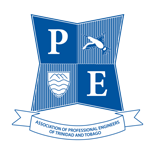

Our Benefits Are Continually Being Enhanced Based On The Requests Of Members
benefits
APETT Membership Is A Career Investment
APETT is an umbrella body for all engineering disciplines providing a learned association for sharing of ideas and discussion of issues across all branches of the applied science, and a balanced platform for contributing to society. APETT membership is a career investment; whether just out of university, or newly registered, or with many years of accomplishments, or anywhere in between, APETT can help its members to grow professionally.
The benefits of membership in the Association of Professional Engineers are derived from participation in the activities of the Association. The benefits are continually being enhanced through the efforts of successive Executive Councils, based on the requests of members and include the following:
This shall improve the professional knowledge and capabilities of engineers through special seminar linkages with academia, other technical training providers and industries in the public and private sector.The Engineering Divisions will also engage in nationwide meetings with peers for information on work being done in industry and solutions being provided.
Activity in APETT Council, Divisions, and Committee can develop personal skills, including the following:
Team building management: ability to motivate groups to work together to optimize productivity; ability to identify and utilize the strengths of team members.
Consensus building decision-making: finding common ground; effective collaboration to set and achieve goals.
Negotiating: understanding other perspectives and effectively communicating your own; resolving points of difference and structuring outcomes to satisfy various interests.
Fundraising: develop networking skills and expand your professional contacts; locate resources and seeking to secure them while minimizing cost.
Leadership skills: leading a seminar or committee project
Standards and developments in practice is presented through specialty seminars. Members development include the following:
Exchange ideas with peers;
Meet a diverse group of industry colleagues;
Participate in discussions, technical sessions, and expositions;
Earn Continuing Professional Development points (CPDs)
Develop business by making new contacts;
Build technical knowledge through locally;
Learn about engineering projects happening in your area or region.
The annual technical journal is now digital and available on the APETT website. The editions of the last five years have also been uploaded. Members are afforded the opportunity to publish in our journal.
APETT is working with UWI and UTT to generate a data bank of the potential candidates who would be seeking employment. This initiative would assist the young aspiring engineers to acquire hands-on experience and build the required skills and competencies in their respective disciplines that are so vital in today’s work environment. In addition, it would empower them to develop acceptable work ethics, norms and values early in their careers that would enhance their personal and professional lives.
APETT recognizes the importance of elevation of its membership through the grades of Student Member, Associate Member, Member, Senior Member and Fellow. The grade of Fellow cannot be attained by direct admission, but in addition to being at least forty years of age, the following criteria must be achieved, with the appropriate weightage: years of Membership in APETT; distinguished career in engineering, including peer reviews and public recognition; service to APETT, including on Executive Council, Divisions, Committees, etc.; and community and social improvement activities.
One of the proudest achievements of APETT was the campaign to enact legislation for the registration of engineers. This effort began in 1962 (two years after the founding of APETT) and, after many hard and frustrating years, culminated in the proclamation of the Engineering Profession Act, No. 34 of 1985. This led to the establishment of the Board of Engineering of Trinidad and Tobago, the body charged with registration or licensing of engineers. APETT is recognized by the Government as the agent for any amendment of the Engineering Profession Act. APETT is seeking the introduction of the following regulations to the current Engineering Profession Act:
In order to practise engineering in Trinidad and Tobago, the individual must be registered with the Board of Trinidad and Tobago (BOETT);
In order to retain registration with BOETT, the individual must successfully complete over a specified period an approved programme of Continuing Professional Development (CPD); and,
Each engineering discipline should have its own BOETT assessment committee consisting of leading professionals in each discipline. The criteria for registration should be set by the assessment committee for each discipline.
Each engineering discipline should have its own BOETT assessment committee consisting of leading professionals in each discipline. The criteria for registration should be set by the assessment committee for each discipline.
APETT is assisting with the provision of technical guidelines for promoting safety, reliability, productivity, and efficiency across many areas of engineering. The following are currently in progress:
The National Plumbing Code,in association with the Trinidad and Tobago Bureau of Standards;
The National Building Code, in association with the Trinidad and Tobago Bureau of Standards, among others.
A team is currently being establishment to pursue a National Drainage Code, in association with the Ministry of Works and Infrastructure.
A team is currently being establishment to pursue a National Drainage Code, in association with the Ministry of Works and Infrastructure.
A revised Conditions of Engagement for Engineers booklet based on research of various international associations of consulting engineers that have published Conditions of Engagements and Scale of Fees (in particular India, Australia, UK, Ireland, etc).
The accreditation of degrees by internationally recognized accreditation agencies provides a great measure of international recognition, however the major accreditation bodies, have advised that that countries and regions should establish their own accreditation agencies of international standards and seek admission to the Washington Accord, rather than depend indefinitely on external accreditation agencies. The established international engineering societies have agreed to assist other countries and regions in establishing accreditation agencies for engineering and technology. The Caribbean Accreditation Council for Engineering and Technology (CACET) was officially established on November 26, 2009 in San Juan, Puerto Rico, at a meeting of members of the Caribbean engineering fraternity, the national accreditation agencies in the region, academics from regional universities and representatives of CARICOM. CACET has started the process of training programme evaluators to add to the existing pool of regional engineers who have experience in international accreditation. CACET intends to work together with the national accreditation agencies in the region and international accreditation bodies engaged by regional institutions in order to gain the experience and recognition required to join the Washington Accord.
APETT is represented on the team of the Office of Disaster Preparedness and Management (ODPM).
APETT seeks to educate and lobby Government public policy makers on appropriate engineering policies and priorities, through meetings, letters and public awareness outreach.
Members applying professional skills in the local community to:
Create awareness about your profession and build awareness that engineering is a highly respected and rewarding career;
Make a difference in your community;
Develop leadership and professional skills;
Encourage members to participate as leaders in society;
Grow as engineers and give back.
Encourage members to participate as leaders in society;
Engineers are often the unsung heroes who work quietly every day to convert ideas into reality to benefit society, many times through innovative efforts. APETT brings this much-deserved recognition to its members each year. Such as:
APETT Career of Excellence in Engineering Award;
R.V.S. Aleong Award for Sterling Service to APETT;
APETT Fenrick R. De Four Award for Outstanding Engineering Achievement;
APETT Aldwyn L. Lequay Award for Outstanding Young Engineer; and
APETT Engineering Research and Innovation Award.

